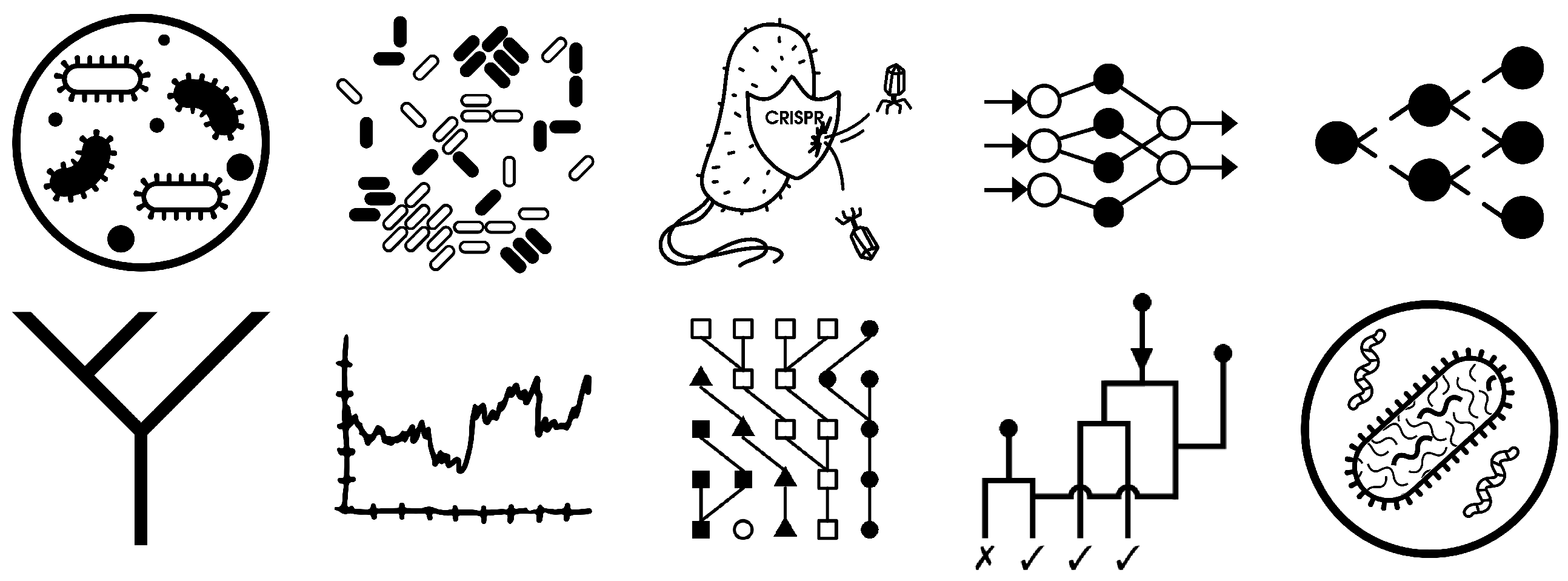Ph.D. position (meanwhile occupied)
Population Dynamics of microbial communities with CRISPR and Phylogenetics of CRISPR spacer arrays
We are seeking a motivated candidate for joining our Research Group for Mathematical and Computational Population Genetics, at the University of Tübingen for a Ph.D. project on the population genetics of CRISPR systems.
The main topic of the Ph.D. project will be centered around the evolution of CRISPR systems in prokaryotes and in particular the composition of the CRISPR spacer array.
This is a project within the DFG priority program "Much more than defense, the many functions of CRISPR-Cas", see also here for the priority program and here for the project abstract.
Examples of some of the issues that we are interested in furthering include (depending on the methodological background):
-
Infer the phylogeny of CRISPR spacers
-
Identify CRISPR spacers under selection based on deviations from neutral population genetic models
- Analyze a diffusion process that describes the co-evolution of CRISPR possessing bacteria
-
Identify pattern in large datasets of CRISPR spacers
- Simulate the dynamics of mobile genetic elements and CRISPR systems
Your contribution will make a significant difference in our young and agile research group. The group's research is primarily focused on mathematical and computational approaches to explain microbial evolution. We are part of two Clusters of Excellence in Tübingen, namely the Clusters "Controlling Microbes to Fight Infections" and "Machine Learning in Science". Our work spans collaborations with biologists to mathematicians. We mainly use population genetics, diffusion theory, stochastic processes, phylogenetics approaches. In all our projects we aim to obtain not only theoretical results but also applicable computational tools for biological data. Therefore we implement inference, estimation, and analysis tools using phylogenetics, simulations, and machine learning approaches to analyze human and prokaryotic genome data.
Besides individual mentoring and guidance for your individual career development, we provide detailed scientific training and open, community-focused science communication. Beyond scientific publications, this will include conference visits, organization and attendance of workshops and possible research visits to other universities or summer schools.
If you are not as keen on the evolution of CRISPR as we are, but would still like to join the group, please get in touch with us anyway. We might have further funding resources that might suit you. In this case, the main topic of the PhD project can be developed together in a discussion with the candidate.
Further details and the official job announcement can be found on the CMFI website.

